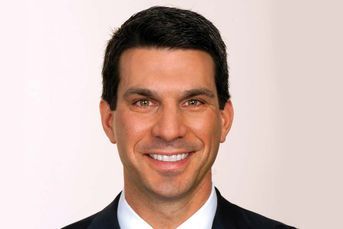Fund dodos dying off at a record pace
It looks like Charles Darwin’s theory of evolution handily applies to mutual funds. The industry is on pace…
It looks like Charles Darwin’s theory of evolution handily applies to mutual funds.
The industry is on pace to make 2000 a record year for the number of funds that are shut down, according to a study by Rockville, Md.-based Wiesenberger, Thomson Financial.
But Wiesenberger analyst Ramy Shaalan says there’s no reason to mourn the loss.
“In the end, this is an industry where only the strongest survive,” he says. “The bottom line is, that’s a good thing.”
During the first nine months of this year, 176 mutual funds shut down. The average shelf life of each was 16.5 months.
The current record is 222 liquidations in 1998, when turmoil in overseas markets seeped into foreign-stock funds.
Funds typically liquidate their assets due to poor performance, a shrinking asset base, or both. Also, when fund groups merge, portfolios with overlapping investment strategies are often combined.
The result is that weaker funds die, which in the long run is beneficial to investors.
Mr. Shaalan says pickier investors are part of the reason for the high number of funds closing. With more than 10,000 funds to choose from, they can afford to be selective.
“Investors have gotten used to staggering returns,” says Mr. Shaalan, pointing out that 171 funds had triple-digit returns last year. “They don’t have to hold on to poorly performing funds.”
can’t live on laurels
He adds that if a fund is ailing, even a fund family’s reputation isn’t enough to keep investors sitting idle with their fingers crossed.
For instance, Baltimore-based Legg Mason Inc.’s respected fund group, which includes noted manager Bill Miller’s Value Trust, shut down its Market Neutral Trust last month after experiencing a year and a half of poor returns.
From its inception in February 1999 through the end of August, the fund lost 6.98%.
A letter sent to shareholders warning of the proposed liquidation resulted in a mad dash for the door.
Assets in the languishing fund fell to $1.2 million by Aug. 25, from $9 million before its filing with the Securities and Exchange Commission Aug. 11.
The largest fund to go by the wayside this year was the $389 million Phoenix Mid-Cap Fund, run by Phoenix Investment Partners Ltd. in Hartford, Conn.
In March, the 10-year-old fund’s assets were simply moved into another portfolio, the Phoenix-Seneca Strategic Theme Fund.
A spokesman at Phoenix characterizes the move as reorganization and a “standard merger of two funds.”
But the move involved closing a fund with a three-year annualized return of 14.22% through 1998 that Morningstar Inc. gave a two-star rating. Phoenix put the scrapped fund’s assets in a five-star-rated fund with a three-year annualized return of 30.05% through 1999. Assets in the Strategic Theme Fund now stand at $642 million, according to Chicago-based Morningstar.
Assets in the Forward Global Asset Allocation Fund, run by San Francisco-based Webster Investment Management Co., also were redistributed, but for marketing reasons.
targeting advisers
Created in April 1998, the Forward fund grew to $110.4 million but was shut down Feb. 11 this year. Phoenix redistributed its assets among three existing funds with more-focused investment objectives to create more appeal among financial advisers.
“From a marketing standpoint, it just made better sense for everyone involved,” says Ronald Pelosi, Webster’s president.
“[Financial] planners pride themselves on being able to say exactly where their clients’ money should go. A global asset allocation fund, with the [distribution] being decided by someone else, takes them out of the picture,” he explains.
Other large closings this year were WPG US Large Stock Fund in January with $145.73 million in assets and Munder Value Y share class in June with assets of $113.91 million. Since 1996, the largest number of fund closures – 124 – have come from the single-state municipal bond sector.
Non-U.S. equity funds rank second with 117 closures; 92 growth-oriented domestic-stock funds have closed since 1996.
Learn more about reprints and licensing for this article.





